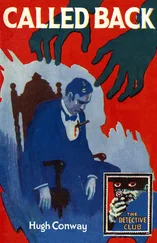Albert Edwards - Comrade Yetta
Здесь есть возможность читать онлайн «Albert Edwards - Comrade Yetta» — ознакомительный отрывок электронной книги совершенно бесплатно, а после прочтения отрывка купить полную версию. В некоторых случаях можно слушать аудио, скачать через торрент в формате fb2 и присутствует краткое содержание. Жанр: foreign_antique, foreign_prose, foreign_sf, на английском языке. Описание произведения, (предисловие) а так же отзывы посетителей доступны на портале библиотеки ЛибКат.
- Название:Comrade Yetta
- Автор:
- Жанр:
- Год:неизвестен
- ISBN:нет данных
- Рейтинг книги:4 / 5. Голосов: 1
-
Избранное:Добавить в избранное
- Отзывы:
-
Ваша оценка:
- 80
- 1
- 2
- 3
- 4
- 5
Comrade Yetta: краткое содержание, описание и аннотация
Предлагаем к чтению аннотацию, описание, краткое содержание или предисловие (зависит от того, что написал сам автор книги «Comrade Yetta»). Если вы не нашли необходимую информацию о книге — напишите в комментариях, мы постараемся отыскать её.
Comrade Yetta — читать онлайн ознакомительный отрывок
Ниже представлен текст книги, разбитый по страницам. Система сохранения места последней прочитанной страницы, позволяет с удобством читать онлайн бесплатно книгу «Comrade Yetta», без необходимости каждый раз заново искать на чём Вы остановились. Поставьте закладку, и сможете в любой момент перейти на страницу, на которой закончили чтение.
Интервал:
Закладка:
Yetta had never had dolls. There had been no younger children in her household. She had never associated with boys. In a starved, vicarious way, through the confidence of Rachel, she had begun to "play" with the ideas of marriage, of home-making, of babies. An unrest, the cause of which she did not guess, had invaded her. She was just coming into womanhood. Nature was working deep and momentous changes in her being. It is a transition which may be beautiful and joyous if freedom for play is given to the developing organs and nerve-centres. Because of her starved childhood it came to Yetta late and abruptly. She was becoming a woman in an environment where nobody wanted anything but wage-earning "hands." And so to her it meant erratic moods of black despair, of uncontrolled and ludicrous lyricisms, of sudden and senseless timidities, abnormal, insane desires.
Unless something happened, her womanhood was to be wasted. She had sore need of a Prince in Silver Armor. But no Princes go about nowadays rescuing fair damsels from the Ogre Greed. However, Rachel had opened a window on a quasi-fairyland where, if there were no bona fide princes, there were at least some "swell-looking men." And just as she was getting intoxicated with the wonderful vision, the window was slammed shut in her face.
CHAPTER III
THE SWEAT-SHOP
The sudden closing of the window made her prison cell seem darker than before. It needed the contrast of the vision to make her see the sordidness and squalor – the grim reality – of that long dark room, with its chaos of noise, its nerve-destroying "speed."
Scattered through the East Side of New York there are hundreds such "sweat-shops," engaged in the various branches of the "garment trade." Sometimes there will be half a dozen in the same tenement; one above another. Even the factory inspectors are never sure of the exact number. They are running so close a race with bankruptcy, it is hard to keep track of them. Often half a dozen will fail on the same day, and as many new ones will start the next. It is not on record that any one ever found a good word to say for the "sweating system." Such "shops" exist because I and you and the good wife and the priest who married you like to buy our clothes as cheaply as possible.
Yetta's "shop" manufactured vests. The four women at each table formed a "team." With separate operations on the same garment, they had to keep in exact unison. If any one slowed up, they all lost money by the delay. They were paid "by the piece," and long hours, seven days a week, brought them so infinitesimal a margin over the cost of brute necessities that the loss of a few cents a day was a tragedy for the older women with children to feed.
Yetta, the youngest of all, was Number One at her table.
The name of Number Two was Mrs. Levy. She was anywhere between twenty-five and fifty, bovine in appearance, but her fingers were as agile as a monkey's. She sat stolidly before her machine, her big body, which had lost all form, almost motionless, her arms alone active. Her face was void of any expression. Her washed-out eyes were half closed, for they were inflamed with tracoma. Eight years before she had brought her three children over from Galicia to join her husband and had found him dying of tuberculosis. She had been making vests ever since. She was an ideal sweat-shop worker, reliable – the kind that lasts.
Opposite her Mrs. Weinstein grabbed the vests as they left Mrs. Levy's machine. She also was a large woman, but not much over thirty, and just entering the trade. She was of merry disposition and had kept much of her youthful charm. Her hair, of course, was disordered; the cloth-dust stuck in blotches to her perspiring face. There was a smudge of machine grease over one cheek, but where her blouse – unbuttoned – exposed her throat and the rise of her breasts, the skin was still soft and white. Her husband, of whom she always spoke with fond admiration as a very kind and wise man, had deserted her a few months before. Engaged in another branch of the garment trades, he had become involved in one of the strikes which with increasing frequency were shaking the sweating system. He had been black-listed. After weeks of fruitless search for work, he had disappeared. If he found work elsewhere, he would send for his wife. He could not bear to stay and be supported by her. She had a sister, who had married well and who would not let the babies starve. Besides, she did not consider herself a regular vest-maker. Some day, soon, her husband would find work, in Boston, Philadelphia – somewhere. She was always expecting a letter to-morrow. So Mrs. Weinstein could afford to be cheerful.
But if Number Two had an unusually stolid body and phlegmatic brain – the type which suffers least from sweating; and if Number Three had been blessed with a merry, hopeful soul, Mrs. Cohen, at the foot of the table, had none of these advantages. She had been Number One, not so very long before – a marvel of speed. Then she had begun to cough. It is impossible to cough without breaking the regular rhythm which means speed. In a few months she had slipped down to the bottom. She was no older than Mrs. Weinstein, but her skin was as yellow as Mrs. Levy's, and even more unlovely, for the flesh behind it had melted away; the only prominences on her body were where her bones pushed out.
She had begun at twenty-one, when her husband died leaving her with two children. There had been another baby a couple of years later – because she had hoped the man would marry her and take her out of the inferno. He had not. And there was no hope any more, for who would marry a woman with bad lungs and three children?
Despair, while embittering her, had cleared her vision. She saw the "shop" and the "system" – and understood. She had entered the trade strong and healthy, and had been well-paid at first, when she had the great desideratum – Speed. It had seemed like good pay then. But now she knew better. They had been buying not only her day-by-day ability, they had bought up her future. For the wages of less than ten years they had bought all her life – they had bought even her children! Already the flow of vests had piled up once or twice too swiftly for her. Jake Goldfogle, the present boss, was threatening to discharge her. If she lost this job, it would be the end. The Gerry Society would surely take her babies and put them in "institutions." No, she had not been well-paid in the days when they had given her extra wages for the pace that kills. It is small pleasure for a mother to hush the hunger-cry of her children, but that was all the joy that was left to Mrs. Cohen. And if she lost her job, she would lose even this.
Just in proportion as Number Four at the bottom of the table had learned many bitter things from life, so Yetta at the head had almost everything yet to learn. She began the long lesson with a pain in her back.
It came unexpectedly. It was as much the insulting surprise of it, as the hurt itself, which made her cry out sharply and drop her work – throwing the whole team out of rhythm.
" Wos is dir , Yetta?" Mrs. Weinstein asked with motherly solicitude.
"Oy-yoy-yoy!" Yetta said, putting her hand to her back – " Es is schon verbei ."
Mrs. Cohen at the bottom of the table laughed mirthlessly.
"It will come back," she screamed in Yiddish above the din of the machinery. "I know. It begins so. One speeds two, three years – four – with one it is the lungs, with another it is the back, or the eyes." She seized the momentary pause to ease herself with coughs.
Mrs. Levy, who had been long in the trade, had seen many a "speeder" give in; some slowly, some suddenly. She had seen dozens of them, fighting desperately the fight for food, slip down from the head to the foot and out – out through the door to the street and nowhere. As Mrs. Cohen had said, it was sometimes the eyes, sometimes the lungs, sometimes the back. She nodded her head in affirmation. Oh yes, she had seen it many times. She could have told the story of one mother who had gone on speeding in spite of back and lungs and eyes, had kept on speeding until one day she had fallen over her machine dead. Her hair had gotten tangled in the cogs, and they had to cut it to take her away.
Читать дальшеИнтервал:
Закладка:
Похожие книги на «Comrade Yetta»
Представляем Вашему вниманию похожие книги на «Comrade Yetta» списком для выбора. Мы отобрали схожую по названию и смыслу литературу в надежде предоставить читателям больше вариантов отыскать новые, интересные, ещё непрочитанные произведения.
Обсуждение, отзывы о книге «Comrade Yetta» и просто собственные мнения читателей. Оставьте ваши комментарии, напишите, что Вы думаете о произведении, его смысле или главных героях. Укажите что конкретно понравилось, а что нет, и почему Вы так считаете.












